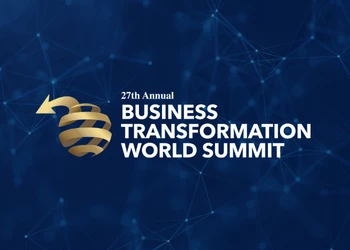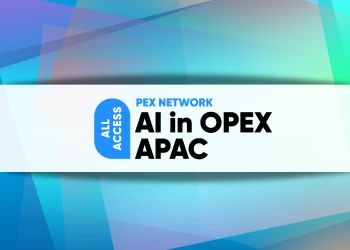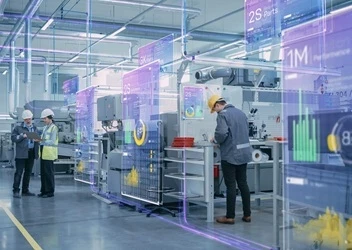TRANSCRIPT: Interview with Michelle Ray
Add bookmarkMichelle Ray, CEO of Walkabout Seminars International and an expert in Personal Leadership and Workplace Relationships, joins Jon Wetzel from Lean for Everyone to discuss steps to encourage positive change and engagement, the role of leadership attitude and intercompany relationships in effective change and how to overcome the biggest negative influencers.
J Wetzel: Please give us a quick overview of your background and focus.
M Ray: I started my business here in Vancouver, Canada in 1995. My background is that I have a political science honors degree, and I began my career working in the media industry in Australia, and then segued into non-profit as well as business, and moved to Canada and established my business here. I have been addressing the topic of personal leadership, and then, more recently, the multi-generational workplace, particularly over the last few years.
J Wetzel:I have a question for you and it has to do with multi-generational relationships and effective change. It’s a big stumbling block for everyone from upper management to the shop room floor. In your experience, what are the top three things everyone should do to encourage positive change and engagement?
M Ray: I think there are really three things. First of all, for people in business process management it’s a natural thing to deal with change on a regular basis. I believe that there are some essential things that we can do, particularly in a leadership role, but for everyone involved in the process.
The first thing is that we should acknowledge the discomfort. People are uncomfortable with change. They get into their comfort zone. They have an idea, they have an emotional investment in that idea and in the process that they’ve created. I think it’s really important that when we’re about to change something to acknowledge how someone else is feeling about that change. I don’t think that happens often enough, so we need to be open about acknowledging how the other person may feel about how it affects them. That’s the first thing, have empathy around how someone is reacting to change before you can expect them to be involved in the change.
The second thing is to involve people in the process. Everyone collaborates in a business process, so when we’re making decisions I think the most important thing is to make sure people have a say and they are involved in the entire change process.
The third thing is to position change in a way that we acknowledge how it affects the individual first. I think this is a step that gets missed first, because if we can point out the benefits to the individual, how does it positively benefit you when we make this change, then you’re more likely to get buy-in. If we just simply talk about how it benefits the organization and ultimately, of course, how it’s going to benefit our clients, I think it’s really a good idea to remember to talk about how it benefits the individual, because that’s what people want to know. How is this going to affect me? So show them the positives first.
J Wetzel: I know an organization is made of individuals, like you were saying. What role does leadership attitude and inter-company relationships have on effective change in today’s multi-cultural and multi-generational organizations?
M Ray: I think it’s never been more important for leadership to realize the influence that they have in terms of change, in terms of inter-company relationships and the diversity of our workforce. I think that a savvy leader recognizes the strength of having that cultural and multi-generational diversity because it brings different perspectives, and it shows us different ways of doing things. That’s one really important point that I would think is key for leaders.
J Wetzel: How can we nurture this?
M Ray: I think when it comes to the multi-generational workplace especially, to recognize that every generation deals with change differently, and also every generation works differently. For example, if you think about Generation Y, which is the most recent generation to come into the workplace, those born after 1982, if you consider that they grew up with technology from the crib, it’s much more understandable that they would be more comfortable with technology and with change because it’s been the norm to them all their lives to see a lot of change, to experience the age of speed. I think if you can understand those different perspectives and why they exist, and the values and attitudes of the different generations, and be able to capitalize that as a leader, you’re going to have a very highly-engaged workforce.
J Wetzel: I understand now from the positive side, understanding the multi-generational and, of course, multi-cultural Gen Ys. On the flip side, what are the biggest negative influencers to leadership engagement in change?
M Ray: I think that really negative attitudes are the biggest negatives, if you will, and also a lack of open-mindedness. Unfortunately we still see this in the workplace that people haven’t accepted the diversity again from a multi-generational standpoint. Some generations have a harder time with it than others. Some individuals have a harder time than others. The key is that we have to look at our own attitude. My premise is that you can’t have an engaged workforce, as a leader, unless you’re prepared to be engaged yourself.
J Wetzel: How do we avoid these negative influencers?
M Ray: I think we have to examine our own attitudes and we have to educate ourselves and be open to those changes as well, and to realize what motivates people. Really, the biggest motivators are intangible, so if we create an atmosphere where people can express themselves openly, where they feel positive energy being at work themselves, and a culture that is a very highly-energized, innovative culture, then it’s going to solve your problems about people looking elsewhere, wanting to take another job. Perhaps you may be thinking about what would happen if you lost that talent, if it walked out the door. That’s why it’s really important to understand that the greatest motivators are generally motivators that are intangible, and we create that atmosphere together. Everybody has that responsibility.
J Wetzel: We’ve talked about how to deal with increased positive change and engagement, how to nurture it, and, of course, what to avoid. If you had one piece of advice that you could give to our community about achieving and managing change in their work and personal life, what would that one piece of advice be?
M Ray: I would say realize that it’s important to expect the unexpected. Change is normal. It’s a natural, organic thing and we all go through peaks and valleys in life, and in business. If we can just appreciate that it’s a normal, natural part of life and business, I think it makes our lives a lot easier.
J Wetzel: At the IQPC event you’re going to be running a workshop on building workplace relationships. Can you give our community a snapshot into some of the content you’ll be covering?
M Ray: Certainly. As we discussed a little already, I’ll be helping the audience understand the diverse workplace from the multi-generational standpoint. I’ll be helping them to understand that it’s the lens we use to view the world that has shaped our attitudes and values, and each one of us are products of our time. So because we have been profoundly affected by specific watershed events in our lifetime, that’s why we have a different generational lens. I’m going to be addressing the different values and attitudes, how to motivate the different generations, and also to appreciate our similarities, which I think is another key point. It’s not only about our differences. Sometimes when we focus on differences it polarizes those differences. If we look at what we all have in common, which really is underscored by the fact that we all want to be understood, it helps us to have a more effective workplace.
J Wetzel: It sounds like it’s really going to be a great workshop. I wanted to actually thank you, also, for your time today. It’s been great hearing about the work that you’re doing, and some of the principles that you use, and the overall content that you’re going to be talking about at the workshop. We look forward to hearing more about the event in April too. Do you have any last words for our listeners?
M Ray: Definitely. Remember there’s also a keynote presentation, The Power of Personal Leadership and I know that’s going to be on the second day. Be prepared to come and be engaged and be inspired and to enjoy yourself, because the more we participate the more we’ll enjoy the conference overall. I look forward to being there as well as on the panel on the last day.
J Wetzel: So, basically bring a positive attitude?
M Ray: You’ve got it.
J Wetzel: Thanks again, Michelle, for your time.
[eventPDF]
Please note that we do all we can to ensure accuracy within the translation to word of audio interviews but that errors may still understandably occur in some cases. If you believe that a serious inaccuracy has been made within the text, please contact +44 (0) 207 368 9425 or email helen.winsor@iqpc.co.uk.























